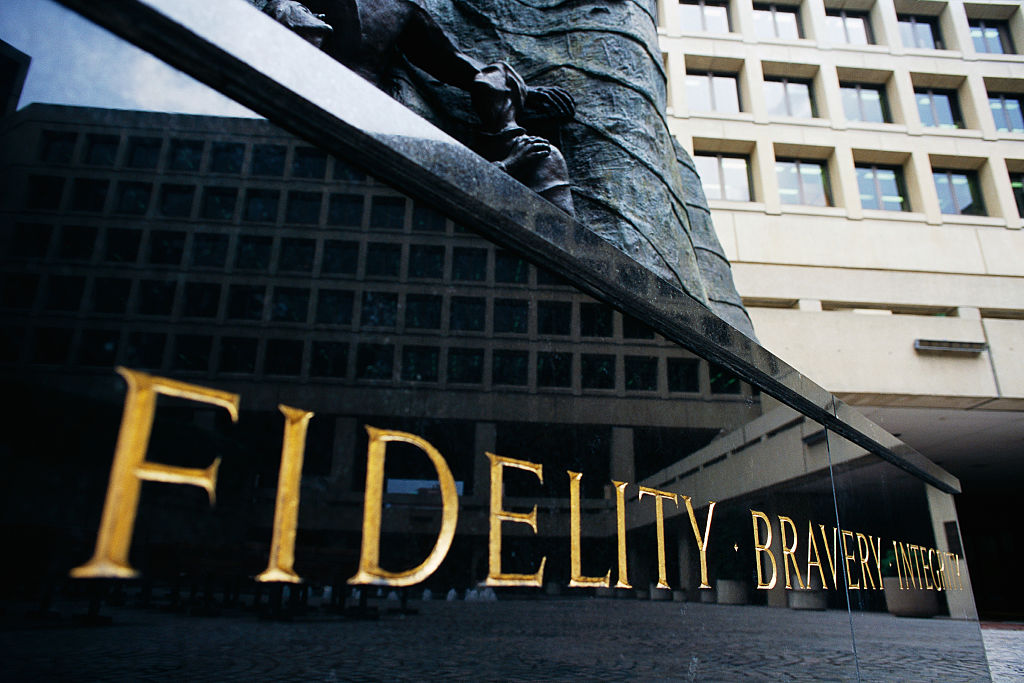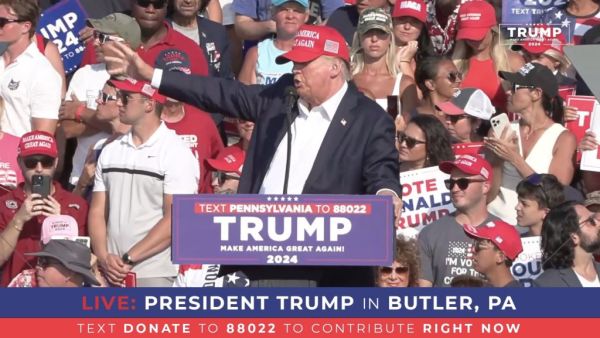As Elon Musk keeps releasing internal Twitter documents through a series of “Twitter Files” document dumps, it’s time for a legal explainer. When does government involvement with private sector businesses create a First Amendment problem?
The answer is more elusive than you might think. The mere fact of government input in private sector decisions does not by itself create a constitutional problem. In fact, the government has a right to try to convince private citizens and private corporations to take action. But when the government moves to coercing the private sector, it can often cross constitutional lines. And discerning the difference between persuasion and coercion can be difficult indeed. Let’s break this down step-by-step.
First, the government has a right to convince. One of the most comprehensive recent discussions of the line between persuasion and coercion comes out of the Second Circuit Court of Appeals. In a 2022 case called National Rifle Association v. Vullo, the NRA sued the former superintendent of the New York State Department of Financial Services claiming that she “used her regulatory power to threaten NRA business partners and coerce them into disassociating with the NRA.”
The case primarily turns on guidance letters and a press statement that Vullo issued two months after the Parkland school shooting. Critically, the letters and statement also came six months after Vullo had commenced an investigation into NRA affinity insurance programs.
The guidance letters were sent to DFS-regulated insurance and financial institutions, and they urged regulated entities to consider the “risks, including reputational risks” of a continued relationship with the NRA. New York governor Andrew Cuomo issued his own statement that “directed DFS to ‘urge insurers and bankers statewide to determine whether any relationship they may have with the NRA or similar organizations sends the wrong message to their clients and their communities who often look to them for guidance and support.’”
The NRA sued, claiming that this “guidance”—along with Vullo’s comments at a meeting with an NRA-endorsed insurance company—crossed the line into coercion. The Second Circuit disagreed, even though New York was actively investigating a number of the NRA’s financial partners and even though the guidance letters came from an official with direct regulatory authority over the NRA.
Why wasn’t that coercion? As the court explained, “The First Amendment does not forbid [Vullo] from speaking about her preferred course of action; rather, it gives her the freedom to advocate for it.” Moreover, “Although she did have regulatory authority over the target audience, and even assuming some may have perceived the remarks as threatening, the Guidance Letters and Press Release were written in an even-handed, nonthreatening tone and employed words intended to persuade rather than intimidate.”
To be honest, I’m not sure I agree. I think the greater context may well have rendered the guidance letters in particular unreasonably coercive. (The NRA has said it will appeal the case to the Supreme Court.) But the case illustrates an important principle: Government officials have a broad, constitutionally protected right to try to persuade private entities to take the action the government wants them to take.
Second, express or implied coercion implicates the First Amendment. For a good example of when persuasion can become coercion, let’s stay in the Second Circuit and take a look at the 2007 case Zieper v. Metzinger. In that case, the FBI grew alarmed at a website advertising a film called “The Military Takeover of New York City.” Concerned that the film could cause a violent public reaction, the FBI decided to “ask” the filmmaker to remove the film from the internet.
But the FBI’s version of “asking” was quite aggressive. The bureau served a grand jury subpoena on the filmmaker’s website hosting service to obtain information about the website. FBI agents went to the filmmaker’s home. When the filmmaker’s attorneys contacted the FBI and objected to their request to remove the website, they told counsel that “that more FBI agents were on their way to [the filmmaker’s] home and that he could not stop them. They also enlisted an assistant U.S. attorney to persuade the website hosting service to block access to the website.
The Second Circuit ultimately held that the FBI and DOJ defendants were entitled to qualified immunity, yet the court expressly noted that “a rational juror could conclude that the officers’ actions and comments could reasonably be interpreted as an attempt to coerce Zieper into removing his film from the internet” even if law enforcement didn’t explicitly threaten prosecution:
Although the police may not have expressly told Zieper or his attorneys that he faced punishment for his actions, their decision to send not only an FBI agent, but also three police officers, to his home before even speaking with him could have reasonably suggested to someone in Zieper’s position that there might be legal consequences if he failed to accede to the government’s request that he remove his video. So, too, could the fact that the government officials repeatedly called him, twice in quick succession the first evening and then again the next day, even though he had told them he would call them.
Indeed, as the Second Circuit notes, the physical presence of police officers (especially unannounced) is a factor for courts to consider when determining if coercion exists.
Third, the Twitter files don’t yet prove coercion, but there’s still much we don’t know. This last point will be extremely unsatisfactory for many readers, but the tweet threads exposing FBI interaction with Twitter simply don’t provide enough information to reach a definitive conclusion about the FBI’s conduct.
As we’ve seen, the FBI has a right to persuade or convince, so anyone who says that FBI efforts to convince Twitter to take down content constitute “proof” that the FBI violated the First Amendment is making an argument that the case law doesn’t truly support. Moreover, it’s important to remember that the FBI isn’t just a law enforcement agency. It has a core counterintelligence mission that seeks to “counter the activities of foreign spies.”
In addition, we can’t forget that the intelligence community concluded that Russia did, in fact, conduct an “influence campaign” in 2016 that was “aimed at the U.S. presidential election.” Russia attempted to “undermine public faith in the U.S. democratic process, denigrate Secretary Clinton, and harm her electability and potential presidency.” Russia’s election interference included an “extensive” effort “to manipulate social media outlets to sow discord and to interfere in the 2016 election and American society.”
Consequently, the FBI would be committing national security malpractice if it wasn’t actively communicating with social media companies in 2020. It should have been alert for evidence of foreign manipulation, and takedown requests—properly articulated—would be a necessary part of the FBI’s toolkit.
Thus evidence that the FBI asked Twitter to share information or to take down content is not proof of a First Amendment violation. The test is much more strict. Here’s how the Second Circuit framed it in the NRA case:
We have considered the following factors when distinguishing between attempts to convince and attempts to coerce: (1) word choice and tone, (2) the existence of regulatory authority, (3) whether the speech was perceived as a threat, and, perhaps most importantly, (4) whether the speech refers to adverse consequences.
I cite that test not because it’s the only legal means of determining coercion but because the conceptual framework is simple and relatively easy to apply.
In this case, while the FBI possesses obvious law enforcement authority, the other factors tend to cut against coercion. The documents exposed so far do not threaten adverse consequences, and they’re written in polite, bureaucratic language. For example, one of the emails Matt Taibbi highlights in a “Twitter Files” thread is this email from the FBI:
Note that it asks for Twitter to take “any action or inaction deemed appropriate within Twitter policy.” Other tweets expose requests from the FBI to take action on tweets the FBI believes violate Twitter’s terms of service. There are no threats in those emails.
Yesterday Michael Schnellenberger dropped another tweet thread outlining additional FBI action to flag potential foreign election interference. The thread does not show the FBI ordering or even asking Twitter to block access to the New York Post’s Hunter Biden story, but it definitely does outline considerable additional FBI involvement with Twitter, including placing pressure on Twitter to share information that Twitter normally refuses to share absent “legal process”:
It’s obvious that the FBI’s persuasion efforts were pervasive and persuasive, but were they also coercive? Interestingly, both Taibbi and Schnellenberger identify incidents where Twitter pushes back on FBI requests. But the fact that Twitter pushes back does not prove the FBI wasn’t coercive.
The simple reality is that we still don’t have a truly complete picture of FBI or intelligence community interactions with Twitter (or any other social media company). You could conclude “no coercion” today only to see a different set of documents drop tomorrow.
You may have noted that I haven’t yet quoted the Supreme Court. There’s a reason: The relevant Supreme Court authority isn’t terribly helpful here. The leading case involving coercion and free expression is relatively old by First Amendment standards. It’s called Bantam Books v. Sullivan, and it dates back to 1963.
In Bantam, the state of Rhode Island created a commission that was designed to “educate the public concerning any book . . . containing obscene, indecent or impure language, or manifestly tending to the corruption of the youth.” If the commission identified such a book, it issued notifications to distributors that “requested the distributor’s ‘cooperation,’ and advised him that copies of the lists of ‘objectionable’ publications were circulated to local police departments, and that it was the Commission’s duty to recommend prosecution of purveyors of obscenity.”
The threats in Bantam were quite clear. The Twitter Files so far don’t contain similar threats.
As I said, it’s unsatisfying to look at a set of facts and conclude that you don’t really know how courts will decide a dispute. If you made me express an opinion, I’d argue that the evidence does not yet show coercion. I’m having a hard time finding prior case law that found coercion under similar facts.
That’s a soft conclusion, and it’s contingent on additional developments. But here’s the bottom line: The mere fact that the government asks a corporation to remove speech from its platform does not automatically convert compliance into a violation of the First Amendment. Public officials have free speech rights as well.
One last thing …
If you can’t get enough of this topic (and really, who can?), check out the latest episode of Advisory Opinions. Sarah and I discuss the Twitter Files and reach the same tentative conclusion I reached above. It’s definitely worth considering whether the government violated the Constitution, but we don’t quite have the evidence to conclusively support the accusation. Please give the pod a listen. Sarah has many great thoughts.









Please note that we at The Dispatch hold ourselves, our work, and our commenters to a higher standard than other places on the internet. We welcome comments that foster genuine debate or discussion—including comments critical of us or our work—but responses that include ad hominem attacks on fellow Dispatch members or are intended to stoke fear and anger may be moderated.